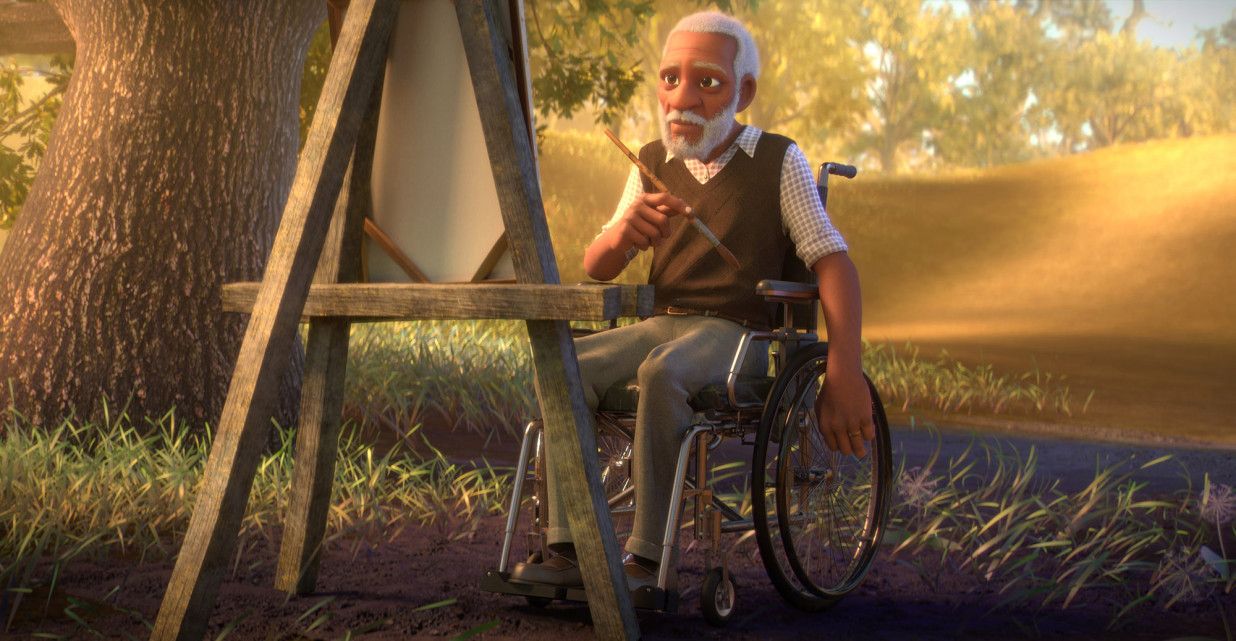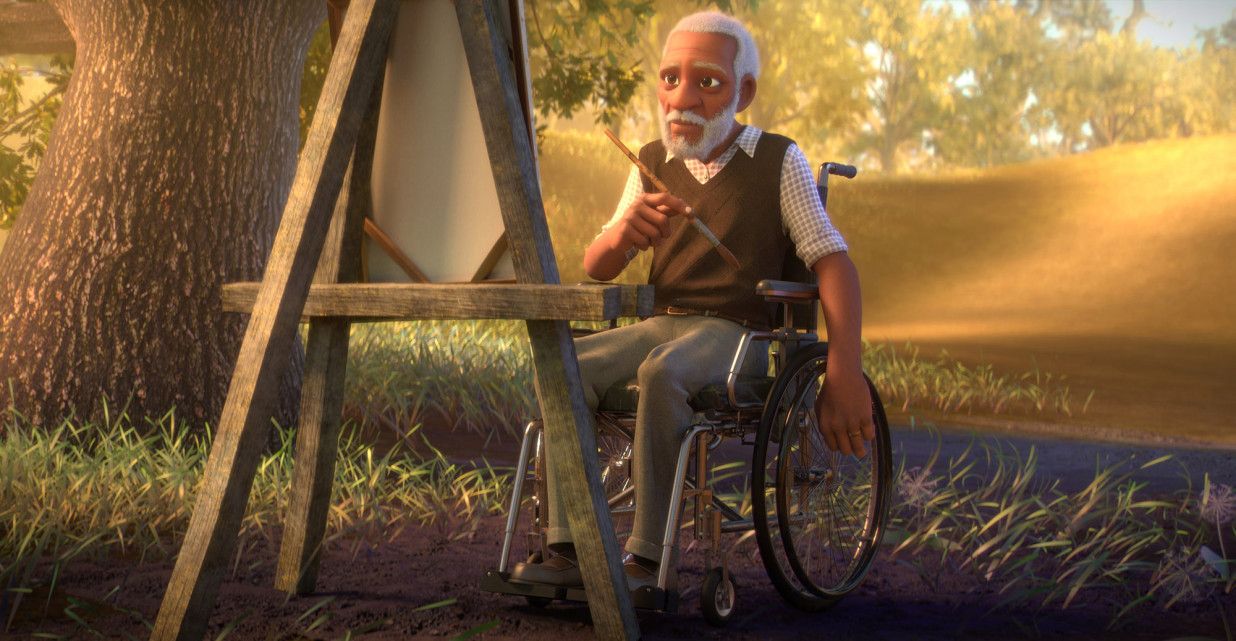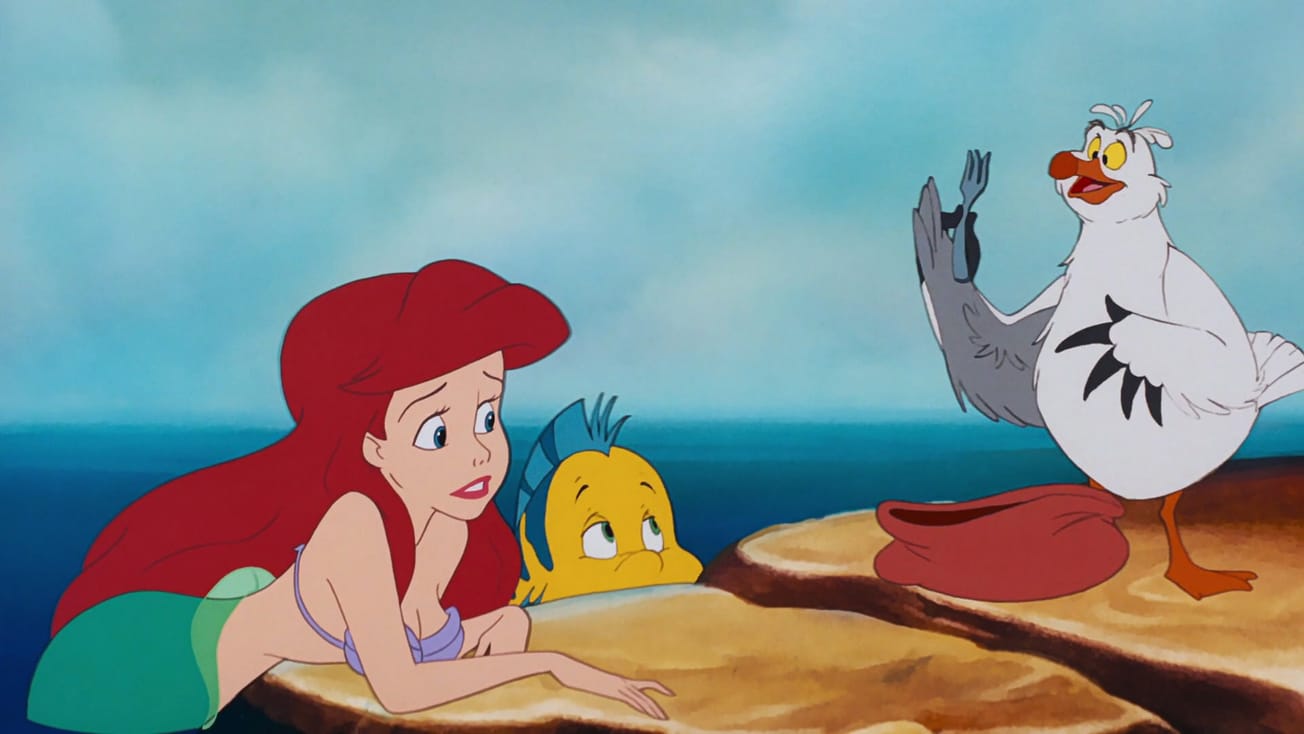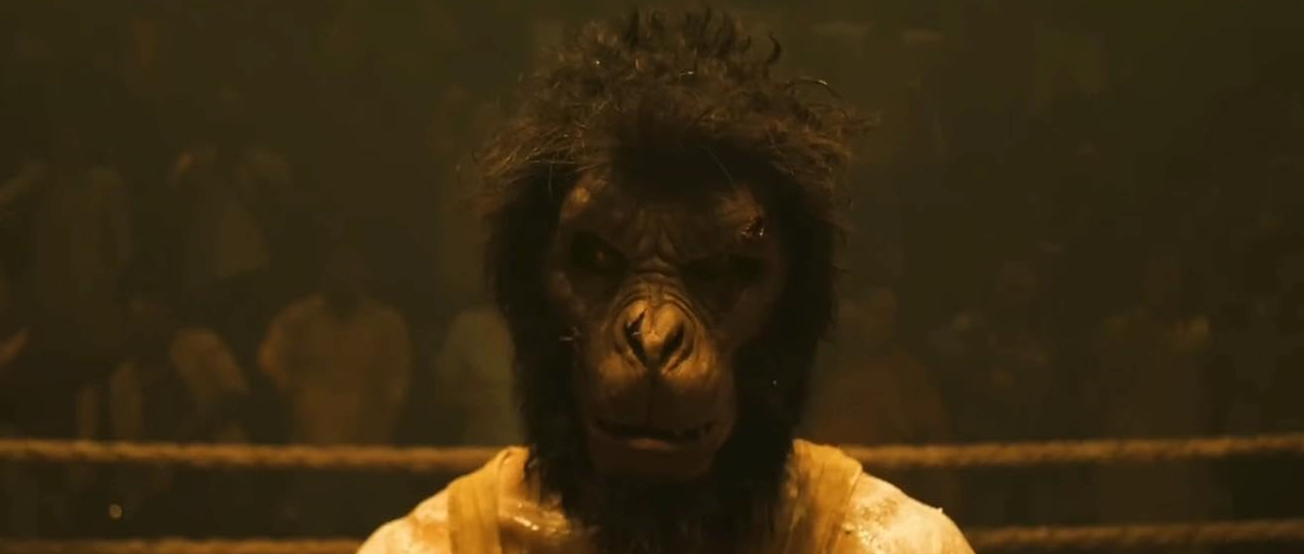By Samuel Vickers, Film & TV Deputy Editor
The second in a trilogy of unpublicised short films, Netflix’s Canvas (2020) is a detailed and moving account of loss and recovery. A labour of love for Director Frank Abney III, the nine minute film has been in the works for the past six years, devised and animated in the team’s spare time.
Abney initially hoped to fund the film personally but eventually turned to public donations with a Kickstarter page; the full budget was raised in less than a week. Canvas features only four characters and is set in one location, the grandfather’s house, and yet we are taken on an emotional journey. Canvas plays with foreshadowing and flashbacks and Jermaine Stegall’s powerful soundtrack ebbs and flows with the action. Filling the silence of the missing dialogue, the music is as crucial for storytelling as it is for evoking feeling.

With zero dialogue, Canvas is a masterclass in visual storytelling - every half-smile and slightly-too-long hug conveys intense feeling. The varied drawing styles are extremely captivating and very beautiful, and the detailed animation more than suffices in telling the story; each frame is like a painting.
The film follows a widower, wheelchair-bound grandfather and centres around two visits from his daughter and granddaughter. We discover that the grandfather used to be a very talented artist but since his wife’s death, he seems paralysed by inaction, unable even to accept the crayon his granddaughter cheerfully thrusts into his face. With several lingering shots of a door obstructed by his late wife’s possessions, it eventually becomes clear that it is the door to his now disused studio. The granddaughter is care-free and weightless, in painful contrast to her mother and grandfather’s thinly veiled grief, and it is she who eventually coaxes him to pick up a paint brush again for the first time in years.
Every half-smile and slightly-too-long hug conveys intense feeling
Abney has discussed his reasons for wanting to make this film, citing the death of his father when was just five years old and his own insouciant niece, on whom the character of the granddaughter is based. It is plain how much heart and soul has been poured into these 543 seconds, not one of which is wasted. The message is crystalline in its clarity, that even though his passion has been buried (physically and mentally) it can always be excavated, he has only to find it.
Top ten festive pandemic-mas movies!
Is there a lack of representation for Jewish people in film and television?
Frank Abney worked as an animator on Toy Story 4 (2019), and as executive producer on the 2019 Academy Award-winning short film, Hair Love (2019). Black characters are even rarer in animated films than they are in live-action cinema, and Abney has spoken about the conscious effort he made when working on Hair Love and Canvas to give more representation of black characters. The other two films in this thematic trilogy from Netflix (the theme being ‘tears’, though it is styled by Netflix as ‘feel-good’?) are If Anything Happens I Love You (2020) and the yet to be released Cops and Robbers (2020), which bleakly ponder a school shooting and the BlackLivesMatter protests, respectively.
Featured: Netflix
What's your favourite animated short?








